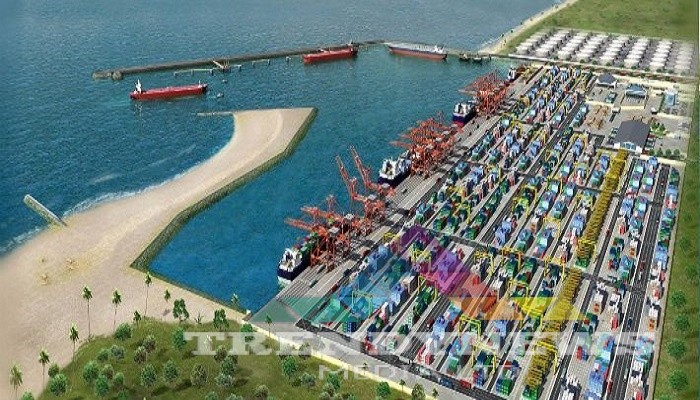FG saved $16bn from port concession – Terminal operators

Terminal operators operating in the nation’s maritime sector under the aegis of Seaports Terminal Operators of Nigeria have said that the 2006 port concession has saved Nigeria $16bn in 16 years.
The Chairman of the STOAN, Vicky Haastrup, said this recently while speaking at an event in Lagos.
Haastrup, who was represented at the event by the spokesperson of STOAN, Mr Bolaji Akiola, said that the amount translates to $100m annually.
The Federal Government had embarked on a port reform in 2006, which led to the concession of cargo handling operations at the port to private terminal operators
According to Haastrup, the exercise has been a huge success and brought tremendous improvements to the country’s port system.
She said, “The port concession programme has reduced the time waited by vessels coming into our ports from an average of 45 days before 2006 to less than three days currently. It has helped in eliminating the notorious congestion surcharge hitherto imposed on the ports by major shipping lines under the aegis of the Europe-West Africa Trade Agreement. The elimination of the port congestion surcharge resulted in saving Nigeria’s trading community about $100m per annum. If you multiply that by the 16 years of port concession, that amounts to a savings of more than $1.6bn to date.”
She said that other benefits include the injection of private capital into port development; freeing up government resources for other developmental purposes; elimination of port congestion; modernisation of the ports; improved availability of cargo handling equipment; competition among terminal operators; improved welfare and training of port workers and the institution of a condition of service for dockworkers.
“You may recall that prior to the port concession, dockworkers were casualised. They did not have employers and did not have conditions of service. The narrative has since changed with the introduction of the Collective Bargaining Agreement, which created a condition of service for them and also created room for a review of their remuneration every two years.
Our port concession regime has been studied and duplicated by many other African countries,” she asserted.
Haastrup claimed that the economy of the country has benefitted immensely from the port concession.
“The drawbacks at the port are as a result of the cumbersome cargo clearing process, high rate of physical examination of cargo by customs, over-dependence on roads for cargo delivery as well as bad roads leading into and out of the port. I believe that once these challenges are addressed by the government, Nigerians will reap more gains from the port concession,” the STOAN chairman added.



